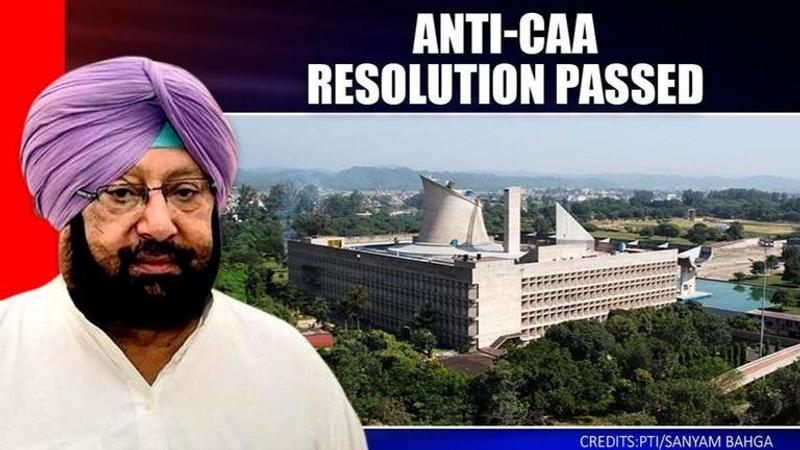Published 13:24 IST, January 17th 2020
Punjab follows Kerala, passes resolution against CAA amid AAP-Akali Dal walkout
Following the Kerala government's lead, Punjab state Assembly on Friday has passed a resolution against the amended Citizenship Act (CAA), following Kerala

Following the Kerala government's lead, Punjab state Assembly on Friday has passed a resolution against the amended Citizenship Act (CAA). The resolution was moved by State Minister Brahm Mohindra in Congress-led Assembly earlier in the day. Punjab had called a two-day special Assembly session on Thursday and Friday.
Punjab passes anti-CAA resolution
"The CAA enacted by Parliament has caused countrywide anguish and social unrest with widespread protests all over the country. The state of Punjab also witnessed protests against this legislation, which were peaceful and involved all segments of our society," Mohindra said while reading out the resolution. Opposition MLAs belonging to BJP-ally Akali Dal and Aam Aadmi Party staged a walkout. On Thursday too they had walked out protesting 'non-fulfillment' of government's promises.
Kerala Assembly passes anti-CAA resolution
On January 4, the Kerala Assembly passed a resolution for not implementing the Act in the state and has also written to the central government regarding the same. Moreover, Vijayan has written to eleven state governments who are against CAA to follow the same pathway against the Act, but the governor Arif Mohammad Khan has called the resolution 'unconstitutional'. The LDF which rules the state has taken a firm stance against CAA and NRC, staging several protests across the state.
CAA enforced in India
Amid the violent anti-CAA protests throughout the nation, the Centre, on January 10, declared that the Act is in force throughout the nation. Issuing a notice informing the same the Centre stated 'the govt appoints 10th day of January 2020 as the day the provisions of the Act will come into force'. The Act was signed by President Ram Nath Kovind on December 13 and the Supreme Court is yet pronounce a verdict on petitions challenging the plea.
What is the CAA?
Introduced by Home Minister Amit Shah, the Act amends the previous Citizenship Act 1955 to make refugees who are Hindus, Sikhs, Buddhists, Jains, Parsis and Christians from Afghanistan, Bangladesh and Pakistan, eligible for citizenship. Moreover, the Bill exempts the inner line permit areas in Nagaland, Mizoram and Arunachal Pradesh and areas falling under the Sixth Schedule in the regions. It will be applicable to the members of these communities having arrived in India on or before December 31, 2014.
Updated 13:24 IST, January 17th 2020




